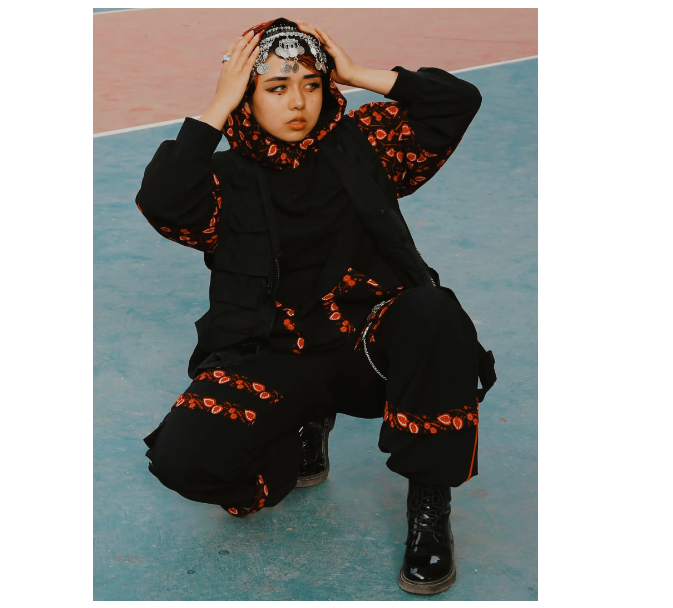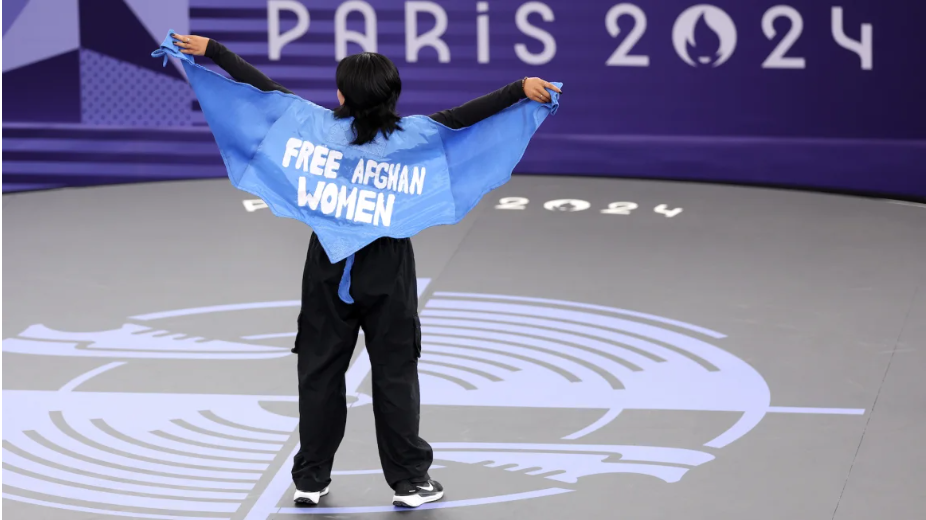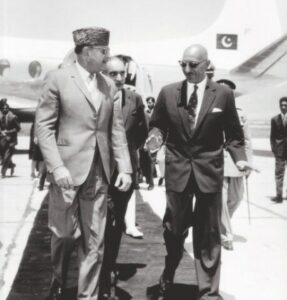B-Girl Manizha Talash, an Afghan member of the Refugee Olympic Team at the Paris 2024 Games, was disqualified on Friday after displaying the words “Free Afghan Women” on her cape during a breaking routine.
The 21-year-old, who fled Afghanistan following the Taliban’s return to power in 2021 and now resides in Spain, took to the floor in the competition’s pre-qualifiers with a light blue cape emblazoned with the slogan, drawing global attention to the plight of women under Taliban rule.
The World DanceSport Federation, the governing body for breaking, announced her disqualification, stating that Talash violated Olympic rules prohibiting political statements on the field of play.
“B-Girl Talash (EOR) was disqualified for displaying a political slogan on her attire during the Pre-Qualifier battle. Results have been updated accordingly,” the Federation said in a statement.
Talash’s protest was aimed at highlighting the severe restrictions faced by Afghan women since the Taliban’s takeover, which include the closure of girls’ high schools, bans on women traveling without a male guardian, and prohibitions on attending universities and public spaces such as parks and gyms.
The Taliban’s repressive policies have made Afghanistan the most challenging country in the world for women’s rights, according to the United Nations.
The International Olympic Committee (IOC), while allowing Afghan athletes to compete under the Refugee Olympic Team banner, has explicitly barred any Taliban officials from accreditation at the Paris Games, standing against the regime’s oppressive policies.
In an earlier statement, Talash expressed that she left Afghanistan not out of fear but to fight for the future of Afghan women.
“I didn’t leave Afghanistan because I’m afraid of the Taliban or because I can’t live in Afghanistan,” Talash said. “I left because I want to do what I can for the girls in Afghanistan, for my life, my future, for everyone.”
Talash discovered breaking through social media and, despite disruptions while seeking a safe place to settle, became one of the 37 athletes representing the Refugee Olympic Team in Paris.
“All refugees have a very difficult life, but they will go to the Games,” she said, expressing pride in her participation.
Meanwhile, in another significant event at the Paris 2024 Olympics, Imane Khelif of Algeria made history by becoming the first woman from Africa and the Arab world to win an Olympic gold medal in boxing.
Khelif defeated Chinese world champion Yang Liu 5-0 in the 66kg welterweight final, a year after she was disqualified from the World Championships due to a gender eligibility controversy.
Khelif’s victory, achieved through a unanimous decision, marked a milestone as she established a commanding lead early in the bout and maintained it despite her opponent’s efforts.
The triumph, supported by a packed Roland Garros crowd, secured her place in Olympic history and ignited celebrations among her fans.
Breaking, a sport rooted in hip-hop culture and street dance, made its Olympic debut at Paris 2024, with B-boys and B-girls showcasing their moves on the world’s biggest stage.
Although Talash’s protest led to her disqualification, it also gained her support, with many praising her courage in using the platform to advocate for Afghan women’s rights.
Nadira Goffe, an associate writer at Slate magazine, captured the sentiment on social media, stating, “I would like to say that it’s only been 11 minutes of breaking and a competitor already pulled out a surprise jacket that says ‘Free Afghan Women’—THAT is breaking. THAT is hip-hop culture.”
When Manizha is not b-girling, she is brainstorming designs that blend Afghan motifs and contemporary streetwear for her clothing line that is currently in the works. Her mother has been her biggest cheerleader all throughout, sending her encouragement from Afghanistan.

“Ever since my father left us,” she pauses for a moment, inhaling sharply, “my mother raised me all alone, filling the shoes of a mother, father and best friend.







